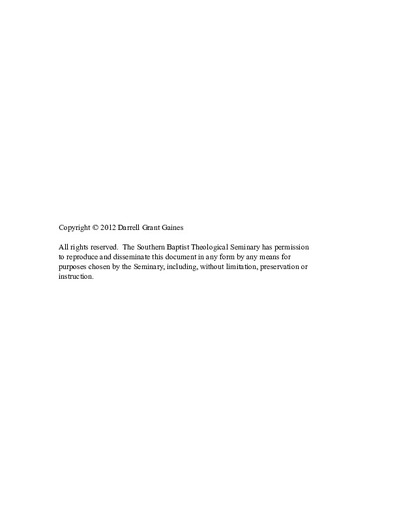| dc.description.abstract | This dissertation argues that a multi-site church that is not characterized by campus-wide gatherings does not have a sound biblical or theological basis for considering itself one church and is inconsistent with historic congregationalism. This argument is made in six steps. First, a framework for determining whether or not a church practice is biblical is put forward. Second, it is shown that the people of God as one assembly is a central theme in the Old Testament. Third, it is demonstrated that this theme of the people of God as one assembly is also a central theme of the New Testament. Fourth, it is argued that there is not precedent for multi-site church structure in the house churches of the New Testament. Fifth, it is shown that multi-site is not consistent with historic congregationalism as seen in Baptist ecclesiology. And sixth, it is argued that multi-site church structure is consistent with historic connectionalism as seen, for example, in Methodist ecclesiogy--a fact that only serves to heighten the problem with multi-site from a congregationalist point of view. | en_US |

